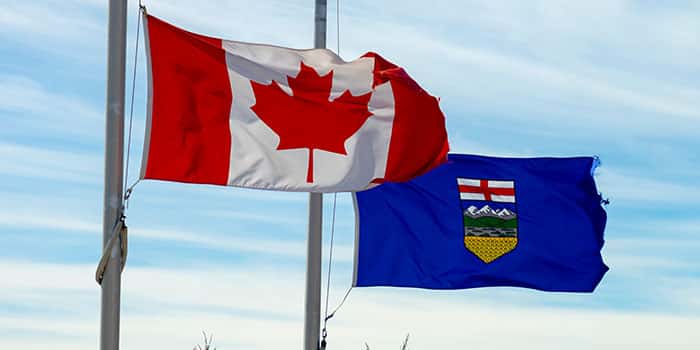- Casino
- By State
- Alabama
- Alaska
- Arizona
- Arkansas
- California
- Colorado
- Connecticut
- Delaware
- Georgia
- Florida
- Hawaii
- Idaho
- Illinois
- Indiana
- Iowa
- Kansas
- Kentucky
- Louisiana
- Maine
- Massachusetts
- Maryland
- Michigan
- Minnesota
- Mississippi
- Missouri
- Montana
- Nebraska
- Nevada
- New Hampshire
- New Jersey
- New Mexico
- New York
- North Carolina
- North Dakota
- Ohio
- Oklahoma
- Oregon
- Pennsylvania
- Rhode Island
- South Carolina
- South Dakota
- Tennessee
- Texas
- Utah
- Vermont
- Virginia
- Washington
- West Virginia
- Wisconsin
- Wyoming
- By State
- Slots
- Poker
- Sports
- Esports
Most Canadians Unaware of New Sports Betting Laws

Canada’s federal ban for single-game sports betting was repealed in August 2021 by the Safe and Regulated Sports Betting Act (SRSBA). The ban on single-game sports betting dates back to 1985, which may be why most people in the country missed the update. A new survey shows that less than 20% of Canadians were aware of the law change.
The Great White North in the Dark
Deloitte’s 2022 report “Bettors perspectives” contains surprising statistics on the state of knowledge in Canada in relation to the country’s sports-betting laws. It states in the Key Insights section that most Canadians don’t realize that they can now place bets on single-game sports events. It is clear that just 19.2% know that single-game sports betting has become legal.
One aspect that the report neglects is that, although the single-game prohibition on sports betting was abolished, the new legal framework gives individual provinces the ability to create and run their own sports-betting companies. These are not currently in existence. Current plans call for online sports betting in Ontario on April 4, 2022.
The lack of launched markets may partly explain why education is so difficult. This means that while Canadian sports betting laws may have changed, Canadians’ experience with it is still very similar to before the SRSBA.
Offshore Betting Still Winning the Contest
Canadians will still be able to wager on sporting events. At least, they have been wagering at an estimated $14 billion at offshore gambling sites. They were operating in a legal grey zone, offering services to Canadians. The offshore betting sites were not used in violation of Canadian laws.
As individual provinces start to create their sports-betting marketplaces, we will gain more knowledge about the legal landscape. Sportsbooks are an important educator in the US. The legalization of online betting meant that sports betting advertising was also legal.
Deloitte reports that there is no shortage of interest among Canadians. The report revealed that almost 38% of Canadians made a sporting bet in recent years or were interested in doing it in the future. This is a good sign for any sportsbook looking to Canada for a future market.
As Canada’s sports-betting education improves, so will the interest in Canadian sports betting. Interest will only grow in the months ahead if Canadians are anything like the people to their south.
Related Topics:
Erik brings his unique writing talents and storytelling flare to cover a wide range of gambling topics. He has written for a number of industry-related publications over the years, providing insight into the constantly evolving world of gaming. A huge sports fan, he especially enjoys football and anything related to sports gambling. Erik is particularly interested in seeing how sports gambling and online gaming are transforming the larger gaming ecosystem.
Previous Article

Industry
February 28, 2022
NorthStar Gaming to Capture Fans and Bettors with NorthStar Bets

Next Article


Industry
February 28, 2022
Nevada's Esports Technical Advisory Committee Adds Ubisoft Executive
Must Read
Industry
April 15, 2025
Brazil Weighs Stricter Rules on Gambling Advertising
More Articles




Casino
April 18, 2025
Florida HB Seeking to Upgrade Illegal Gambling Punishments

Legal
April 17, 2025
Appeal to Keep Evolution’s Accuser Anonymous Denied

Lottery
April 17, 2025
CTLC Says Its Members Didn’t Violate the Texas Law












